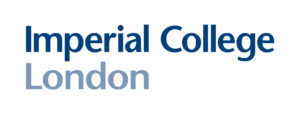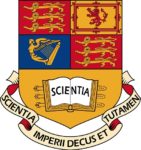4th to 15th September 2017, London, United Kingdom.
 In recent years our understanding of infectious-disease epidemiology and control has been greatly increased through mathematical modelling. With infectious diseases frequently dominating news headlines, public health and pharmaceutical industry professionals, policy makers and infectious disease researchers increasingly need to understand the transmission patterns of infectious diseases. This allows them to interpret and critically evaluate both epidemiological data and the findings of mathematical modelling studies.
In recent years our understanding of infectious-disease epidemiology and control has been greatly increased through mathematical modelling. With infectious diseases frequently dominating news headlines, public health and pharmaceutical industry professionals, policy makers and infectious disease researchers increasingly need to understand the transmission patterns of infectious diseases. This allows them to interpret and critically evaluate both epidemiological data and the findings of mathematical modelling studies.
The transmissible nature and resulting non-linear dynamics of infectious diseases make them fundamentally different from non-infectious diseases. As a result, techniques from ‚classical‘ epidemiology are often invalid and are likely to lead to misleading conclusions.
Over the last 30 years there has been rapid progress in developing models and techniques for the analysis of epidemic data. Those techniques have been applied to a variety of pathogens such as HIV, SARS, avian influenza or pandemic influenza. The Department of Infectious Disease Epidemiology, Imperial College London, has been the world leader in mathematical modelling of the epidemiology and control of infectious diseases of humans and animals, in both industrialised and developing countries, for many years. Our department is actively engaged in research and regularly advises public health professionals, policy-makers, governments, international organisations and pharmaceutical companies, often during real-time outbreak situations.
 The course has been taught since 1990 by leading researchers in infectious disease epidemiology, who provide a thorough, but accessible and demystifying introduction to the essential elements of modelling and an update of the most practically-relevant aspects of this fast-moving field. The course is revised every year to reflect the most recent developments in the field. Diseases covered include avian influenza, SARS, HIV, TB, Influenza A (H1N1), Ebola, malaria and other vector-borne diseases. Past participants have included hospital clinicians, public health executives, health economists, veterinary researchers, biologists, and mathematicians who have come from 42 countries.
The course has been taught since 1990 by leading researchers in infectious disease epidemiology, who provide a thorough, but accessible and demystifying introduction to the essential elements of modelling and an update of the most practically-relevant aspects of this fast-moving field. The course is revised every year to reflect the most recent developments in the field. Diseases covered include avian influenza, SARS, HIV, TB, Influenza A (H1N1), Ebola, malaria and other vector-borne diseases. Past participants have included hospital clinicians, public health executives, health economists, veterinary researchers, biologists, and mathematicians who have come from 42 countries.
Date: 4th to 15th September 2017 Location: Application: You can find information on application and fees here.
Medical School, St Mary’s Campus
Norfolk Place,
London W2 1PG
United Kingdom
Published in GI-Mail 02/2017 (German + English edition). Sign up for GI-Mail here. 
Tip: More up to date educational events can be found online in the Education Database »medicine & health«.
